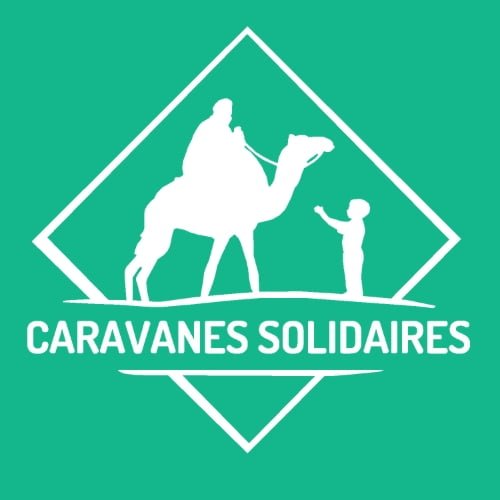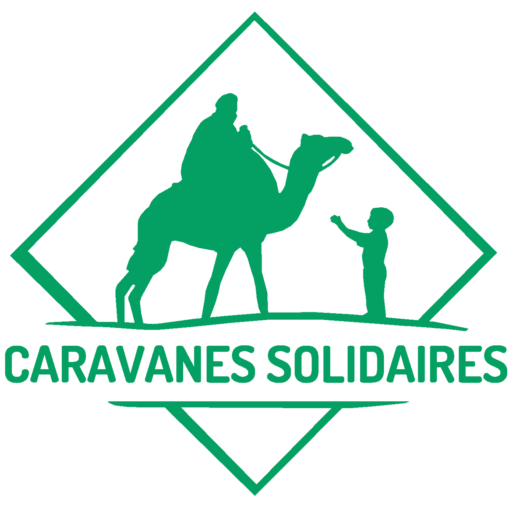Frequently Asked Question
You will find here the most frequently asked questions by our donors. If you still have questions, never hesitate to reach out to us !
Actuellement, nous ne fournissons pas de reçus fiscaux. Toutefois, vous pouvez obtenir une attestation de don en remplissant notre formulaire. Cliquez ici pour accéder au formulaire d’attestation de don
Pour rejoindre nos équipes en tant que bénévole, veuillez remplir notre formulaire de demande. Nous analyserons votre profil et vous contacterons dès qu’une opportunité correspondant à votre parcours se présentera ! Cliquez ici pour accéder au formulaire de bénévolat
Unfortunately, for obvious security reasons, we cannot allow volunteers to travel to the field.
Our humanitarian workers who go to the field are experts in conflict zones. They are accustomed to the challenges and risks inherent in these hostile environments.
If you wish to support our work, there are other ways to contribute, such as making a donation or sharing our projects.
Together, we can make a difference in the lives of the most vulnerable.
Pour toute demande de partenariat, veuillez remplir notre formulaire. Cela nous permettra de mieux comprendre votre proposition et d’évaluer les possibilités de collaboration ! Cliquez ici pour accéder au formulaire de partenariat
We do not offer a child sponsorship program at the moment. However, we invite you to explore our website to discover different ways to support initiatives for children through our humanitarian projects.
Absolutely, we regularly launch projects for constructing wells and boreholes in the countries where we operate. Although there are no such projects currently underway, we invite you to stay connected for upcoming opportunities.
Our efforts span multiple countries, including France, Syria, Yemen, Palestine, Morocco, Guinea, Sri Lanka, Bangladesh, and Somalia, where we have been conducting various projects for several years.
Yes, we have dedicated teams that work daily in the countries of intervention, particularly in Syria, Yemen, and Gaza, to provide our support and successfully carry out our projects.
We have 5 offices abroad: in Syria, Yemen, Guinea Conakry, Mauritania, and Sierra Leone !
Having an office allows us to act quickly on the ground, facilitating the acquisition of visas and permits through our registration as a local NGO.
It also allows us to establish an organized structure with dedicated employees and volunteers, and to manage our finances transparently and legitimately through local bank accounts.
These elements are crucial for providing effective, organized, and transparent humanitarian aid in emergency situations or for long-term development projects.
Yes, humanitarian aid reaches Gaza through the Rafah crossing from Egypt. However, the quantities allowed are very insufficient compared to the needs.
We deliver aid convoys to Gaza through an agreement with the Egyptian National Alliance, signed in October 2023.
Cet accord nous permet d’acheminer régulièrement de l’aide à Gaza. Ces conteneurs contiennent principalement de l’eau et des denrées alimentaires.
Absolutely! We manage the entire chain, from collection to distribution. Our teams on the ground are dedicated to distributing the aid delivered to beneficiaries in refugee camps, as well as in clinics.
The delivery of aid to Gaza is subject to strict restrictions. We do not accept physical donations, only financial contributions. Purchases for Gaza are made in Egypt, from where we organize the delivery of aid.
Absolutely. Every donation received for a given cause is strictly used to support that same cause. Your contribution for Gaza, for example, is entirely allocated to our on-the-ground interventions to assist the distressed population.
In order to protect our teams, we are required to maintain the confidentiality of their exact location.
However, our strategy is to cover the entire territory of the Gaza Strip in order to be able to provide all necessary assistance to the population.
In Gaza, since 2018, we have been working with our trusted partner: the American organization Rahma Worldwide.
We work together to have a greater impact on the Palestinian population.
Thus, we transfer money to the United States through reliable and secure solutions, and then to official association accounts on the ground.
Like any human being, whether from a distance or on site, witnessing injured, mutilated, and deceased civilians is unbearable. When it involves children and babies, the trauma is even greater.
On-site, our team is regularly affected directly or indirectly by the current situation. Whether through the loss of a loved one or through the bombing of one of our facilities.
The deterioration of intervention conditions on the ground and the insecurity caused by numerous bombings do not prevent them from acting alongside the population; on the contrary.
Since 2013, our humanitarian commitment has focused on refugee camps located in the Idlib region of Syria. This region has been severely affected by conflict, and we are tirelessly working to provide vital assistance to displaced and vulnerable individuals.
We deliver aid to Syria by maritime transport. Our containers mainly depart from the port of Fos-sur-Mer in France, bound for the port of Mersin in Turkey. From there, they are transported by land to the Idlib region in Syria.
This process involves close coordination with various authorities to ensure safe and efficient passage, despite logistical and security challenges.
Absolutely! We manage the entire chain, from collection to distribution. Our teams on the ground are dedicated to distributing the aid delivered to beneficiaries in refugee camps, as well as in clinics.
Their expertise and commitment are essential to providing effective support tailored to the needs of vulnerable individuals in Syria.
Having an office in Syria allows us to act quickly on the ground, facilitating the acquisition of visas and permits through our registration as a local NGO.
It also allows us to establish an organized structure with dedicated employees and volunteers, and to manage our finances transparently and legitimately through local bank accounts.
These elements are crucial for providing effective, organized, and transparent humanitarian aid in emergency situations or for long-term development projects.
Having an office in Syria allows us to act quickly on the ground, facilitating the acquisition of visas and permits through our registration as a local NGO.
It also allows us to establish an organized structure with dedicated employees and volunteers, and to manage our finances transparently and legitimately through local bank accounts.
These elements are crucial for providing effective, organized, and transparent humanitarian aid in emergency situations or for long-term development projects.
We operate in several of the most crisis-affected regions of Yemen, where humanitarian needs are most urgent: in the Aden, Al Hodeida, and Sana'a regions. Our efforts aim to provide essential assistance in these areas, working in collaboration with local authorities to address the critical needs of affected populations.
Absolutely! We manage the entire chain, from collection to distribution.
The expertise and commitment of our local teams are essential for providing effective support tailored to the needs of vulnerable individuals in Yemen.
Our organization works closely with local authorities in Yemen to optimize the impact of our humanitarian actions, to coordinate the distribution of relief, assess the most urgent needs, and ensure that our aid reaches affected populations effectively.
This collaboration allows us to better understand local realities, tailor our interventions accordingly, and maximize the effectiveness of our efforts to address the most pressing humanitarian needs.
We ensure the safety of our personnel and beneficiaries in Yemen through strict protocols and close coordination with local authorities.
Your zakat is entirely distributed to beneficiaries either in the form of food parcels or directly in cash, depending on the countries and situations.
Zakat is one of the five pillars of Islam. It is an annual almsgiving required of Muslims. It serves to purify the believer's wealth by combating poverty worldwide.
It is obligatory for every Muslim who has reached puberty, is of sound mind, and whose wealth exceeds a minimum threshold (called "Nissab").
For the year 2024, the amount of Nissab is estimated at 4,754 €, which is equivalent to 85 grams of gold, according to most schools.
Once your wealth exceeds the Nissab (the minimum threshold of wealth). That's when you should pay your Zakat al-Maal. Many people take the new Hijri year as a reference date, which is based on the lunar calendar. Others opt for the month of Ramadan or the civil year (Gregorian calendar).
Zakat al-Maal is calculated based on the assets you have owned for one year, regardless of financial transactions (inflows and outflows) made during the year.
The rate to apply for calculating Zakat is 2.5% for the lunar year or 2.579% for the solar year. Simply multiply the amount of assets subject to Zakat by 0.025 or by 0.02579 accordingly.
For example, if the value of your wealth during a lunar year is €6,000
Le montant de votre Zakat à payer est de 125 euros (5000 x 0.025 = 125)
The properties subject to Zakat are those acquired within a year, whether it be:
- Liquidity
- Gold and silver not used for ornamental purposes
- Shares, shares and investments
- Investment properties and fixed assets
- Business assets
- Goods
- Harvested land products
- Animal breeding
When in doubt, consult experts in the field for precise answers.
Seven groups of people are eligible to receive Zakat:
"Charities are for the poor, the needy, those employed to administer the funds, those whose hearts have been recently reconciled to the truth, for freeing captives, those in debt, for the cause of Allah, and for the stranded traveler." (Quran, S.9 V.60)

